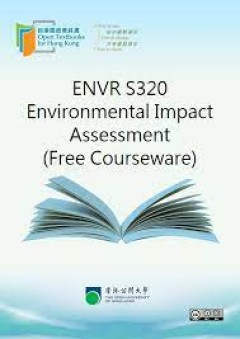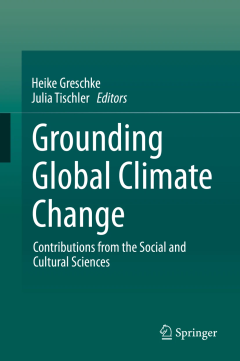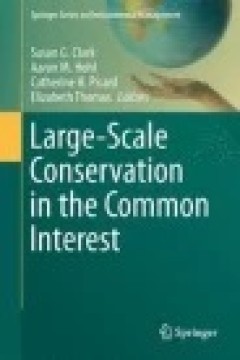Filter by

The Brazilian Amazon
The aim of this book is to analyse the current development scenario in the Amazon, using Terra Preta de Índio as a case study. To do so it is necessary to go back in time, both in the national and international sphere, through the second half of the last century to analyse its trajectory. It will be equally important analyse the current issues regarding the Amazon – sustainable development a…
- Edition
- -
- ISBN/ISSN
- 978-3-319-23030-6
- Collation
- XXIII, 204
- Series Title
- World Forests
- Call Number
- -

Tropical Tree Physiology
This book presents the latest information on tropical tree physiology, making it a valuable research tool for a wide variety of researchers. It is also of general interest to ecologists (e.g. Ecological Society of America; > 3000 or 4000 members at annual meeting), physiologists (e.g. American Society of Plant Biologists; > 2,000 members at annual meeting), and tropical biologists (e.g. Associa…
- Edition
- 1
- ISBN/ISSN
- -
- Collation
- XVIII, 467
- Series Title
- Tree Physiology
- Call Number
- -

Excel 2016 for Environmental Sciences Statistics
This book shows the capabilities of Microsoft Excel in teaching environmental science statistics effectively. Similar to the previously published Excel 2013 for Environmental Sciences Statistics, this book is a step-by-step exercise-driven guide for students and practitioners who need to master Excel to solve practical environmental science problems. If understanding statistics isn’t the read…
- Edition
- -
- ISBN/ISSN
- 978-3-319-40057-0
- Collation
- 3 b/w illustrations, 162 illustrations in colour
- Series Title
- -
- Call Number
- -

Lost Tracks Buffalo National Park, 1909–1939
While contemporaries and historians alike hailed the establishment of Buffalo National Park in Wainwright, Alberta as a wildlife saving effort, the political climate of the early twentieth century worked against its efforts to stem the decline of the plains buffalo in North America. However, the branch charged with operating the park, the Canadian Parks Branch, was never sufficiently funded and…
- Edition
- -
- ISBN/ISSN
- 9781897425107.01
- Collation
- -
- Series Title
- -
- Call Number
- 193 pages

Excel 2013 for Environmental Sciences Statistics A Guide to Solving Practica…
This is the first book to show the capabilities of Microsoft Excel to teach environmentall sciences statistics effectively. It is a step-by-step exercise-driven guide for students and practitioners who need to master Excel to solve practical environmental science problems. If understanding statistics isn’t your strongest suit, you are not especially mathematically-inclined, or if you are wa…
- Edition
- -
- ISBN/ISSN
- 978-3-319-23977-4
- Collation
- 163 b/w illustrations, 2 illustrations in colour
- Series Title
- -
- Call Number
- -

Excel 2010 for Environmental Sciences Statistics A Guide to Solving Practica…
This is the first book to show the capabilities of Microsoft Excel to teach environmental sciences statistics effectively. It is a step-by-step exercise-driven guide for students and practitioners who need to master Excel to solve practical environmental sciences problems. If understanding statistics isn’t your strongest suit, you are not especially mathematically-inclined, or if you are wa…
- Edition
- -
- ISBN/ISSN
- 978-3-319-23971-2
- Collation
- 160 b/w illustrations, 2 illustrations in colour
- Series Title
- -
- Call Number
- -

Law and Agroecology: A Transdisciplinary Dialogue
This book represents a first attempt to investigate the relations between Law and Agroecology. There is a need to adopt a transdisciplinary approach to multifunctional agriculture in order to integrate the agroecological paradigm in legal regulation. This does not require a super-law that hierarchically purports to incorporate and supplant the existing legal fields; rather, it calls for the …
- Edition
- -
- ISBN/ISSN
- 978-3-662-46617-9
- Collation
- -
- Series Title
- -
- Call Number
- -

Environmental Impact Assessment
Environmental impact assessment (EIA) is a widely used tool for assessing the environmental implications of projects, policies and plans. It is also an integral part of the decision-making processes involving environmental issues. With the growing importance of environmental protection and an awareness of pursuing sustainable development, applying EIA techniques has become more important and co…
- Edition
- -
- ISBN/ISSN
- -
- Collation
- -
- Series Title
- -
- Call Number
- 500 OPE e

Grounding Global Climate Change: Contributions from the Social and Cultural S…
This book traces the evolution of climate change research, which, long dominated by the natural sciences, now sees greater involvement with disciplines studying the socio-cultural implications of change. In their introduction, the editors chart the changing role of the social and cultural sciences, delineating three strands of research: socio-critical approaches which connect climate change to …
- Edition
- -
- ISBN/ISSN
- 978-94-017-9321-6
- Collation
- X, 181
- Series Title
- -
- Call Number
- 333.7 GRO

Large-Scale Conservation in the Common Interest
Many people working toward sustainability recognize the important role of conservation but are inadequately prepared to deal with the large spatial, temporal and complexity scales that are involved in large-scale conservation efforts. Problems in large-scale conservation require navigating an intermixture of geophysical, biological and political dimensions. Coming to grips with these many natur…
- Edition
- -
- ISBN/ISSN
- 978-3-319-07419-1
- Collation
- -
- Series Title
- -
- Call Number
- -
 Computer Science, Information & General Works
Computer Science, Information & General Works  Philosophy & Psychology
Philosophy & Psychology  Religion
Religion  Social Sciences
Social Sciences  Language
Language  Pure Science
Pure Science  Applied Sciences
Applied Sciences  Art & Recreation
Art & Recreation  Literature
Literature  History & Geography
History & Geography